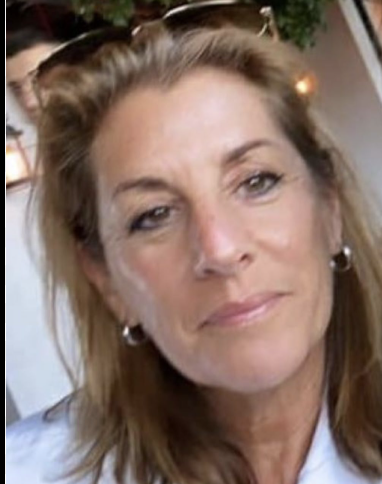With summer season upon us, now's the time when holidays and mini-breaks reach their peak. Yet for many of us this often presents the perfect opportunity for anxiety to make itself known. As an existential-phenomenological psychotherapist, I often find that clients report having their first panic attack or experience severe anxiety when they're on holiday. But how to make sense of this apparently counter-intuitive phenomenon.
Anxiety in the lead-up to going on holiday is more straightforward to unravel. Will the travel arrangements work? Will you have the right documents, the right clothes, the up-to-date passports? Will the hotel look anything like its photos and will everyone remain free of Covid and in good health? It's reasonable and logical and it doesn't confound us.
Staring into the abyss
But what about when you're there and everything has worked out well? You may be with some of the people you love most in the world. You're all getting on. The surroundings are idyllic. There's no work to be done. If you experience anxiety or even a panic attack more severe manifestations of anxiety symptoms at this point it's more difficult to understand what's going on. There doesn't seem to be any reason to feel anxious. As a psychotherapist it's the kind of work I do, helping clients make sense of these experiences. And to me, anxiety on holiday - for apparently no reason - makes a great deal of sense.
Soren Kierkegaard, widely regarded as the first existential philosopher and author of The Concept of Anxiety, talks about existential anxiety. The anxiety around your very existence. For existentialists, it's when we are still that anxiety makes itself known. And when are we more still than when we are on holiday?
But it's more than sitting still. It's also a kind of sitting empty. There's no 'to do' list. There's no work. There is, well, nothing. And here's where another Kierkegaard concept comes in, the idea of falling into the abyss.
The way I talk about it in therapy with my clients is like this: Remember the cartoon Roadrunner? Wile E. Coyote was forever running off a cliff, pursued by Roadrunner. But it's not until he looks down that he falls. And that's part of existential anxiety. We go along in our lives, filled with activity, but when we strip away everything, as happens on holiday, we find ourselves, devoid of activity, looking down and finding ourselves staring into an abyss. And that's when we fall and that's when we encounter anxiety.
So what is it about this abyss? It is the recognition of the big meaning of life questions. When we strip away all the activity and the busyness, we feel ourselves looking down and finding...nothing. In Nausea, Jean-Paul Sartre is describing the feeling this can provoke. The nausea and the anxiety.
The responsibility to make our own meaning
When we realise that there is nothing, we then start to recognise that it's up to us to make something. It's up to us to make meaning of our lives. It's a bit of an 'ask' really! A big responsibility! Aren't we given a manual and would we read a manual? A prescribed path? A set of guidelines received from parents and then, later, perhaps peers and bosses? Well, no. And often we only realise this when everything is stripped away and we're running off the cliff, happily getting into our holiday and we...look down! It's no wonder, when we stare into the abyss, that we suddenly encounter that we feel anxiety or even panic attacks.
Faced with the realisation that it is up to us to make meaning of our lives, we also recognise the responsibility for creating that meaning. We have the freedom, within certain 'givens', to make our own meanings and to reach our own individual potential. And with that is the guilt if we choose not to. This then, is the existential guilt. The existential anxiety. Anxiety around our very existence and the guilt around not looking at what we need to do to create meaning or pursuing our own meanings.
Much has obviously been written about life meanings and existentialism and I would certainly recommend Kierkegaard, Sartre and Yalom as starting points but we can start to recognise what anxiety represents when it makes itself known when all is still - particularly on holidays. We can then go on to make sense of this anxiety and to look at how we want to create our own meanings and how we may be getting it wrong. Existential-phenomenological therapy can be incredibly helpful in this kind of work.
Life's paradox
Sartre talked about us being a process, continually in development and never fixed. It's up to us to make meaning of our loves, to keep on making meaning, to live life with courage and not to live in 'bad faith' knowingly avoiding our existential responsibilities. In Victor Frankl's wonderful book, Man's Search for Meaning, Frankl says that if we understand why someone lives we understand how they live. His Logotherapy urges us to examine how we live our lives. To look for the meanings we create and to keep on reflecting on and creating our meanings, whether that's our activities or the connections we make.
For most weeks of the year we operate, 'eyes front' or down on our list of things to do. But for some of us, when we stop, when we settle down with time and space and stillness, we look down. And there it is. The abyss - and the anxiety it brings. We live with the paradox that we're looking for meaning where there is none but the meaning that we create. And it's up to us to have the courage to create it, within the givens of our lives.

